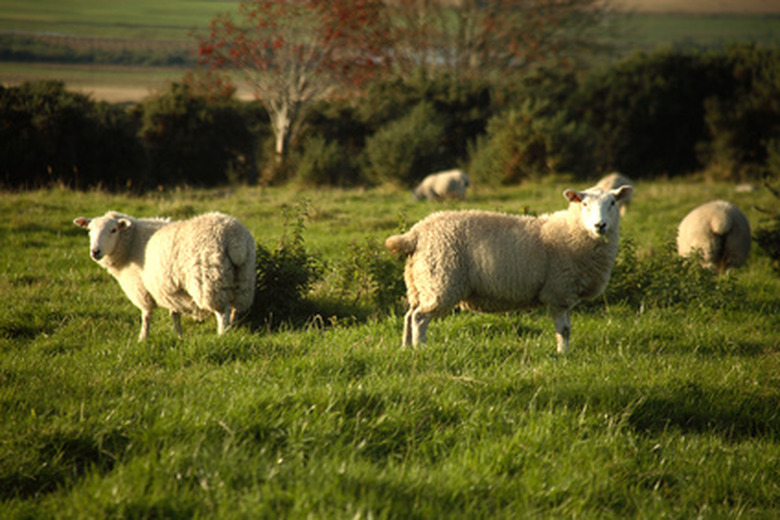What Is Mutton Tallow?
The term tallow refers to rendered fat from cattle or sheep. It's processed from suet, the raw form of the fat, and can be stored without refrigeration for long periods of time. Mutton tallow has a number of traditional uses, and is still in some demand today. Tallow may be used in food, lubricants, personal care, soap making and a number of other fields.
Benefits
Benefits
Mutton tallow is a natural product with a relatively long shelf life. As a skin care product, it penetrates the skin, providing more softening power than petroleum-based products, which sit on top of the skin. This product is readily available in areas where sheep are slaughtered for food and hides, and relatively inexpensive. It can be used to add a "meaty" flavor to some foods, such as french fries, and as a binder in sausages. Mutton tallow is also used to make fat balls and suet blocks for birds.
Disadvantages
Disadvantages
Mutton tallow is derived from slaughtered adult sheep, and is thus inappropriate for food or other products used by vegetarians. The use of a mixture of lard, mutton and beef tallow in rifle cartridges has been credited with sparking the 1857 Sepoy Mutiny in British-controlled India. Users had to bite the cartridges before use, and may have inadvertently consumed religiously-prohibited animal fats.
Biodiesel
Biodiesel
Mutton tallow, along with other animal fats, can be converted to biodiesel to power vehicles. The process for producing biodiesel from tallow is very similar to that of making it from plants. Tallow-based biodiesel burns more efficiently and more cleanly than plant biodiesel, but crystallizes at higher temperatures, making it unsuitable for use in very cold climates.
Nutrition
Nutrition
According to Nutrition Data, one cup of mutton tallow provides 1,849 calories, all of which come from fat. A little less than half of those calories come from saturated fat, providing 209 milligrams of cholesterol. Tallow contains 5.7 milligrams of vitamin E per cup and 164 milligrams of choline. Mutton tallow provides no carbohydrates, proteins, or other major vitamins, and is considered mildly inflammatory.
Skin Care
Skin Care
Mutton tallow is still used in skin ointments and natural skin care remedies. It penetrates layers of dead and callus skin, softening hard areas. Traditional skin care remedies may involve dangerous chemicals, such as turpentine, and should be avoided or adjusted to use safer ingredients. Mutton tallow can also be used in soap and candle production.
Cite This Article
MLA
Palmer, G.D.. "What Is Mutton Tallow?" sciencing.com, https://www.sciencing.com/mutton-tallow-6516251/. 22 November 2019.
APA
Palmer, G.D.. (2019, November 22). What Is Mutton Tallow?. sciencing.com. Retrieved from https://www.sciencing.com/mutton-tallow-6516251/
Chicago
Palmer, G.D.. What Is Mutton Tallow? last modified March 24, 2022. https://www.sciencing.com/mutton-tallow-6516251/
